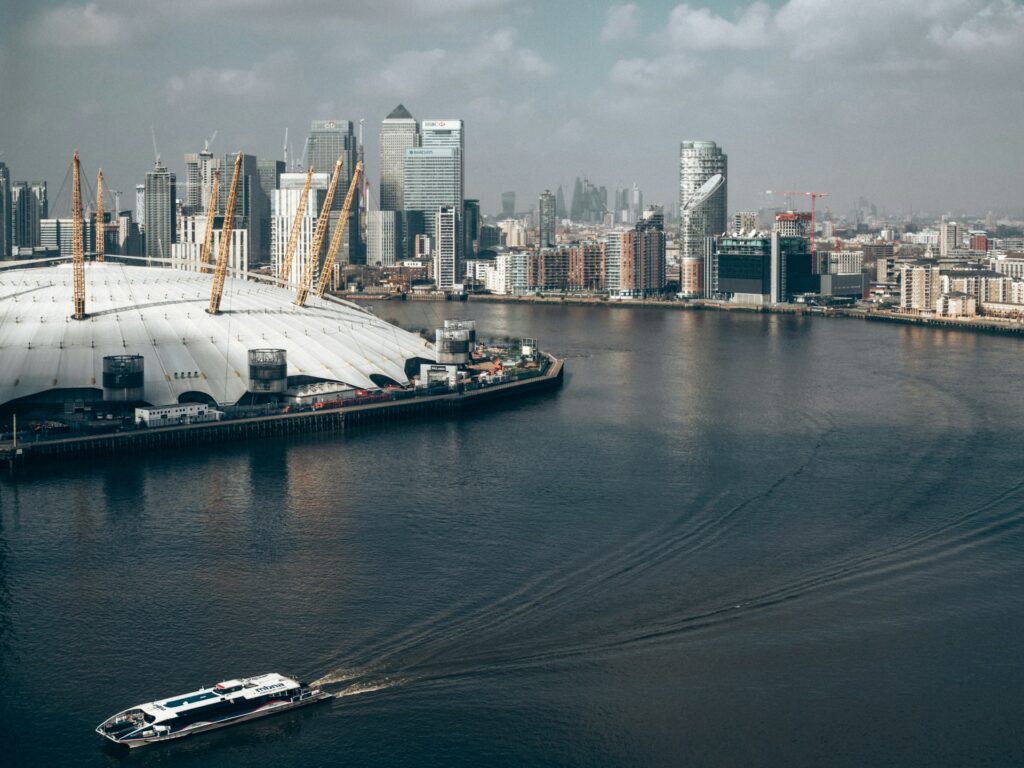ECONOMY

Financial Responsibility
Governments easily forget that they do not have their own money; the money raised from taxation belongs to the people and should be spent wisely, not wastefully or in self-interest.
Fiscal prudence
The Heritage Party believes in fiscal responsibility, which means living within our means as a nation. A sovereign nation should not spend beyond its means year after year and decade after decade, as has been the case in the United Kingdom over the last 40 years.
We must reduce the annual budget deficit to zero and get the nation’s finances back into balance otherwise there will be a heavy price to pay in the future. Countries which consistently rack up debt always end up with a debased currency and/or hyperinflation which disproportionately harms the middle and working classes.
In the long term, we must aim to reduce our national debt and begin to build up a sovereign wealth fund which can provide a source of revenue for pension funding, rather than operating the state pension like a Ponzi scheme. The government of today must not squander the wealth which has been bequeathed to us from our forefathers. It is our duty to be good stewards of our economy and to leave it as an inheritance for future generations.
Monetary Policy and Inflation
Monetary policy must be responsible. It must not unnaturally inflate asset prices, which create ‘boom and bust’ bubbles that punish ordinary people by devaluing the currency as well as making house prices totally unaffordable for young people and families. The government should not continually inflate the money supply with Quantitative Easing; previously known as printing money.
We will seek to ensure that monetary policy works in favour of ordinary British people who want to buy a home of their own, rather than leading to homes being sold off to speculators who often leave them empty further exacerbating an unnecessary housing crisis and hollowing out communities.
We favour a target inflation rate of 0%, which can be achieved by reducing profligate government spending to a point where extra government borrowing is unnecessary, thus ending Quantitative Easing.
Cutting spending to eliminate the budget deficit
The first steps towards fiscal responsibility will be to stop wasting tens of billions of pounds every year on foreign aid, migrant hotels and welfare, diversity officers, overseas military conflicts that are not our national interest, subsidies for unreliable and expensive forms of energy like wind turbines and solar panels, subsidies for zombie businesses which could not survive in the free market, and vanity projects like HS2.
Taxpayers’ money should only be spent on essential public services and items which benefit the people such as schools, healthcare, the police, the border force and honouring the military covenant rather than running down our armed forces.
Defunding NGOs and QUANGOs
The burgeoning ‘third sector’ is another multi-billion-pound black hole, whereby the state has increased its control over the charity or non-profit sector. Instead of allowing people to make their own choices about which charities they choose to support, successive governments have steadily increased funding to the non-profit sector, and they decide which charities, NGOs and QUANGOs to re-distribute our money to. Many of these NGOs and QUANGOs are politically active and seek to influence government policy using taxpayers’ money. This is absolutely wrong and undemocratic. The entire NGO sector should be defunded by government, and QUANGOs should be disbanded. Essential government services should be brought in-house and run directly by government Ministries and Departments instead of QUANGOs, saving billions of pounds and leaving politically active NGOs to find their own funding.
Responsible Banking
We must strengthen Glass-Steagall style banking regulations which separate run-of-the-mill high street banking from high-stakes high-risk investment banking. Everyday people and small and low-risk businesses should not be exposed to high-risk ventures so that they are protected from systemic adverse events in the banking sector for which they are not responsible.

Low Taxation
It is our aim to reduce the burden of taxation on individuals and businesses as much as possible. Tax rates should be as low and as simple as possible and should never be used as a political weapon of envy or punishment.
Personal Taxation
We will abolish employees’ National Insurance and combine it with Income Tax. We will structure this combined Income Tax in the first instance into 2 bands of 30% and 45% with higher Personal Allowance thresholds.
We will end the freeze on Personal Allowance threshold for Income Tax and increase the lower threshold annually in line with inflation, or above inflation when feasible. In the long-term, Income Tax rates should be reduced and the Personal Allowance increased further to take advantage of the Laffer curve.
We will end the tapering of the Income Tax personal allowance for earners between £100,000 and £125,000 which leads to an unfair marginal tax rate of 60% for earners in that bracket. The Income Tax Personal Allowance should remain in place for all taxpayers.
We will abolish Inheritance Tax.
We will abolish Stamp Duty on UK citizens’ primary residences. Stamp Duty should remain for UK citizens purchasing second homes or additional properties. Stamp Duty will not be applicable to foreign citizens as we would remove the right to buy residential property from foreign nationals.
We will support families by increasing the percentage of Income Tax Personal Allowance that can be shared by married couples with children from 10% to 100%. This means that a single earner in a traditional family of a husband, wife and children will not pay any Income Tax on the first £25,140 of income.
We will abolish the TV licence.
We will abolish VAT on private school fees and domestic energy bills.
We will scrap climate levies on fuel and other goods
Corporate Taxation
Corporation Tax should be set as low as possible to encourage enterprise and increase overall tax revenues through stimulating economic growth. We will reduce the higher rate from 25% to 20% and make further reductions when feasible.
We will increase the threshold for paying Employers’ National Insurance from £5,000 to £10,000 per annum over the term of Parliament.
We will end the VAT cliff edge, where small businesses are perversely incentivised to trade less to keep their taxable turnover below £90,000 per annum. We will introduce tapered VAT Relief for businesses with a taxable turnover between £90,000 and £180,000 so they never earn less after paying VAT by trading more.
We will abolish all carbon taxes, carbon emissions trading schemes and climate levies.
We will impose a moratorium on minimum wage increases that perversely lead to job cuts in small businesses that cannot afford the annual increases.
Business Rates disadvantage businesses that need physical premises, such as hotels and restaurants, which have to pay Business Rates in addition to Corporation Tax. As shopping habits have changed significantly since the beginning of the 21st Century and online shopping is now ubiquitous, Business Rates are no longer fair or appropriate. We would replace them with an Online Sales Tax to be levied on companies that have a digital turnover above £500,000 p.a.
Large international corporations with multi-million or multi-billion pound turnovers and profits should pay their fair share of taxation but many exploit tax avoidance schemes that result in them paying less tax than a sole trader. This is unfair and any such loopholes must be closed.

Free and Fair Markets
A free market economy provides liberty and prosperity. Where individuals are rewarded for their endeavours, they have the incentive to work efficiently and avoid poor decisions.
Capitalism Superior to Marxism
In contrast to free market economies where individuals are free to make their own economic choices, planned economies based upon Marxist ideology have always been disastrous, bringing scarcity, poverty and hunger instead of prosperity, and almost always accompanied by tyranny and oppression as well.
We completely reject the model of Stakeholder Capitalism being promoted by the World Economic Forum, which is a mixture of Communism and Technocracy, both of which are totalitarian ideologies that have proven to be failures.
Recent governments have paid lip service to capitalism while implementing socialism by stealth using the concept of the ‘mixed economy’ or the ‘third way’. Governments have excessively interfered in the free market, propping up zombie companies who conform to the latest politically correct ideologies, for example on climate alarmism. Many such companies do not produce anything of value and would collapse without government subsidies. This is unfair to businesses which do not receive government subsidies and is a drag on the economy in the long-term. It is wrong for the state to interfere in the economy in this manner.
Reducing Regulations
Unnecessary regulations should be reduced as much as possible to allow maximum freedom to trade, but well-drafted regulations are necessary to protect workers from exploitation, to ensure that the environment is not damaged, and to ensure a fair and level playing field between businesses of different sizes. Regulations which provide unfair advantages to large businesses and global corporations over small and medium sized businesses should be scrapped.
Removing Sales Quotas
Climate sales quotas are anti-free-market and we will scrap them all. There should no requirement for car sales outlets to sell a certain percentage of electric cars, or for heating businesses to sell a certain percentage of heat pumps.
Nationalisation of Utilities
There are some sectors which should be wholly owned and operated by the state. These include the armed forces, the police force, the probation and prison services and public roads. There are other sectors which constitute natural monopolies which are at present part-privatised including rail, water and energy. Part-privatisation constitutes the worst of all worlds. Price capping in selected sectors means that businesses in those sectors are not able to operate freely in the market. In order to compensate for this the state then subsidises them for billions of pounds which is paid for by higher taxes.
The owners and executives of these businesses have all the benefits of government subsidy, but none of the risks which come from making poor business decisions, and this is reflected in the extortionate transport, energy and water prices we are all accustomed to.
Rail, energy and water companies that constitute natural monopolies and are vital for the nation should be nationalised if they cannot survive without financial support from taxpayers: it is not right that taxpayers underwrite all the risks for no reward.
Price Capping
We will end price setting and price capping, except in nationalised utilities.
Re-industrialisation
Our nation was the cradle of the Industrial Revolution and has a long history of manufacturing. In recent decades, successive governments have run down our manufacturing base, and it needs to be re-invigorated and rebuilt. To this end there must be a move to lower rates of taxation for businesses and an end to net-zero, carbon capping and other regulations which stifle industry and make the UK uncompetitive.
In exceptional circumstances, the government should step in to protect industrial facilities of national importance such as steel works, oil refineries and aluminium smelters if they are under threat.
We will take control of steel manufacturing at Scunthorpe and Port Talbot, re-open their blast furnaces and ensure the production of virgin British steel can re-commence.
We will take control of the oil refinery at Grangemouth and the ammonium production facility at Billingham and re-open them.
Broadband
London and the big cities have become well-connected to the global digital super-highway, but many parts of the UK, such as rural, agricultural and fishing communities have been left behind creating a massive divide between the digital “haves” and the “have nots”. This is unfair. We intend to close that gap by ensuring that all communities have access to super-fast broadband.
